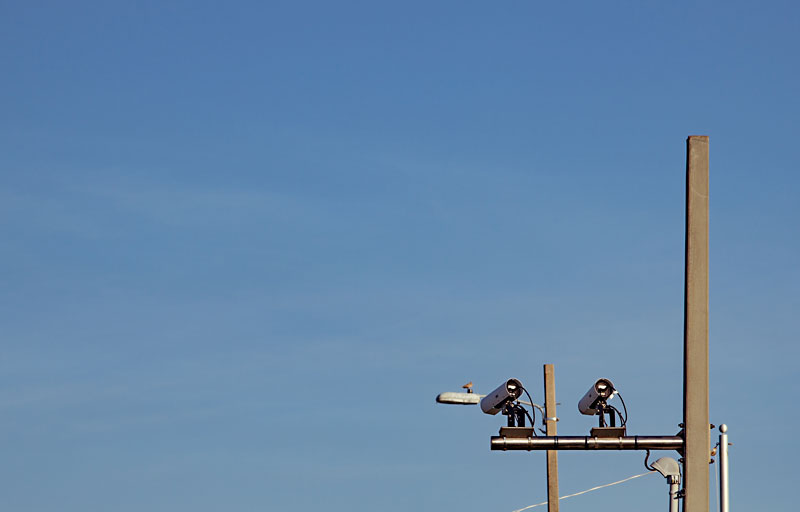With License Plate Readers, APD Is Always Watching
A program to keep them will continue for at least one year
By Brant Bingamon, Fri., June 16, 2023
After years of debate, the controversy over license plate readers seems to be cooling off. City Council decided on June 8 to re-up a program letting the Austin Police Department use the devices for one year, with only Council Member Zo Qadri voting no. The city will spend $1 million to install 40 license plate readers at intersections around town.
Automatic license plate readers, or ALPRs, use cameras to snap photos of the license plates that pass by them. They send the license data, along with descriptions of the cars, to a national database containing "hot lists" of vehicles of people wanted by law enforcement. When there's a hit, police receive an alert within seconds, telling them where a subject's car was mostly recently photographed.
APD used license plate readers from 2016 to 2021, scanning millions of license plates each year. The program was discontinued by City Council as part of its "reimagining public safety" initiative in the summer of 2020, after protests over the police killings of George Floyd and Mike Ramos, with justice advocates arguing that studies have shown that ALPRs can lead to harassment of Black and brown citizens by police. Since then, APD and Council Member Mackenzie Kelly have lobbied for the program's return.
APD has argued that ALPRs can help mitigate the ongoing officer shortage and promised to use the readers only to investigate serious crimes – class A misdemeanors and felonies. "We're not using it for class C tickets and warrant roundups and that sort of thing," Assistant Chief Jeff Greenwalt told Council in September of 2022.
Still, advocates warn that the readers can be used to conduct mass surveillance, since the information they gather is instantly shared with law enforcement agencies across the country. Kevin Welch of the Electronic Frontier Foundation told Council at the same September 2022 meeting that there is nothing preventing law enforcement agencies such as Immigration and Customs Enforcement and the Texas Department of Public Safety from using the data collected by Austin's license plate readers to arrest undocumented individuals or people seeking abortions. "This tech is mass surveillance – indiscriminate monitoring of people," Welch said. "'Indiscriminate' is the key word. It's not targeted for suspected wrongdoing. It is mass surveillance, whether or not you want to call it that."
In an effort to limit the technology's potential for abuse, Council Member Chito Vela tried to restrict the amount of time that license plate data can remain in APD's computer system from 30 days – the previous standard – to three minutes. At its June 8 vote, Council set the retention period to seven days.
Got something to say on the subject? Send a letter to the editor.









